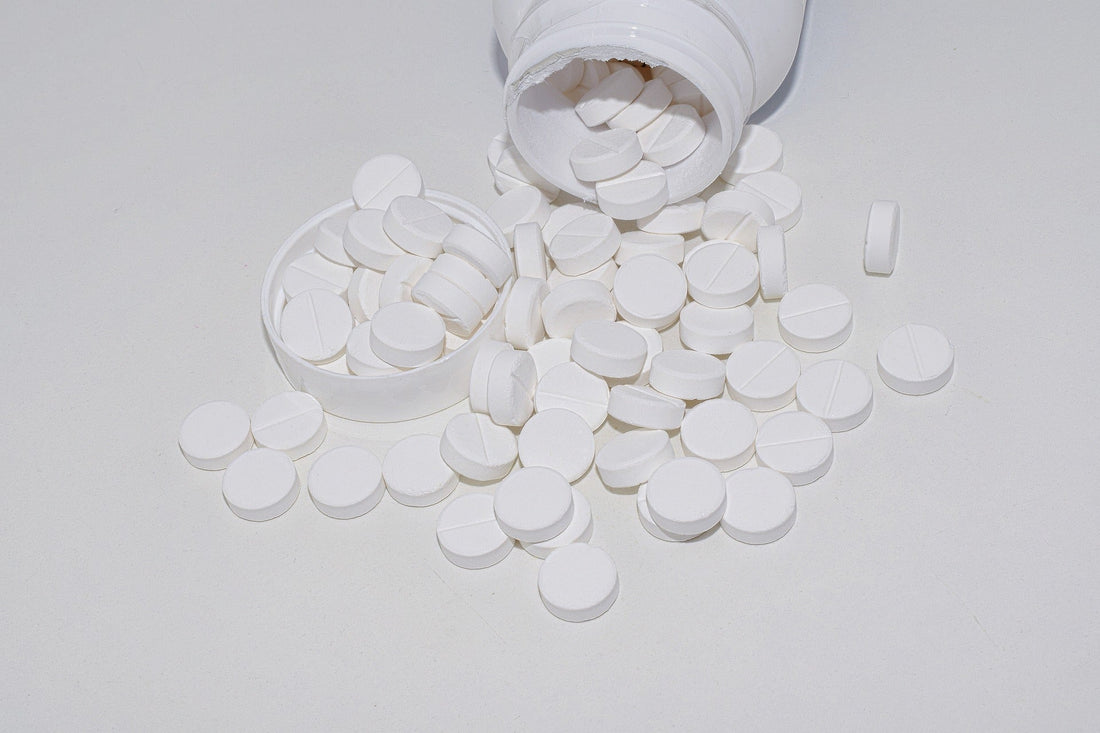Il glicinato di magnesio è una forma popolare di integratore di magnesio, noto per la sua elevata biodisponibilità e i suoi effetti delicati sul sistema digerente. Se stai pensando di aggiungere il glicinato di magnesio alla tua routine, capire il dosaggio ottimale, il momento migliore per assumerlo e altri fattori chiave può aiutarti a massimizzarne i benefici.
Cos'è il Glicinato di Magnesio?
Il magnesio è un minerale fondamentale per centinaia di funzioni corporee, tra cui la funzione muscolare e nervosa, la produzione di energia e il controllo della glicemia. Sfortunatamente, molte persone non assumono abbastanza magnesio solo con la dieta.1
Il glicinato di magnesio combina il magnesio con la glicina, un amminoacido. Questa combinazione offre diversi vantaggi:
- Elevato Assorbimento: la glicina aiuta il magnesio a bypassare il sistema digerente in modo più efficiente, portando a un migliore assorbimento rispetto ad altre forme come l'ossido di magnesio.2
- Più delicato sullo stomaco: a differenza di alcune forme di magnesio che possono causare disturbi digestivi, il glicinato di magnesio è generalmente ben tollerato, il che lo rende una buona scelta per chi ha stomaci sensibili.4
Forme di Glicinato di Magnesio
Il glicinato di magnesio è disponibile in varie forme, tra cui:
-
Capsule: Sono il tipo più comune e offrono un modo comodo per assumere il glicinato di magnesio.
-
Polvere: Questa forma può essere facilmente mescolata ad acqua o succo, ma può avere un sapore leggermente amaro.
-
Liquido: Il glicinato di magnesio liquido viene facilmente assorbito, ma può essere meno comodo e più costoso di altre opzioni.
Magnesio Glicinato - Dosaggio
Il dosaggio raccomandato di magnesio glicinato dipende da diversi fattori, tra cui età, salute generale e motivo per cui lo si assume. Il National Institutes of Health (NIH) raccomanda le seguenti assunzioni giornaliere per gli adulti:1
-
Uomini 400-420 mg
-
Donne 310-320 mg
È importante consultare il medico per determinare il dosaggio più adatto a te, soprattutto se soffri di patologie pregresse o stai assumendo farmaci.
Momento Migliore per Assumere il Glicinato di magnesio
Non esiste una risposta definitiva sul momento migliore per assumere il glicinato di magnesio. Tuttavia, alcune persone trovano utile assumerlo prima di andare a letto per favorire il rilassamento e il sonno. Altri preferiscono assumerlo al mattino per evitare potenziali effetti collaterali digestivi. In definitiva, il momento migliore dipende dalle tue esigenze e preferenze individuali.
Glicinato di Magnesio - Effetti Collaterali
Interazioni farmacologiche
Il magnesio può interagire con alcuni farmaci. Discuti dell'integrazione di magnesio con il tuo medico se stai assumendo farmaci.
Potenziali Effetti Collaterali
Sebbene generalmente ben tollerati, dosi elevate di glicinato di magnesio possono causare diarrea. Tuttavia, uno studio del 20135 ha indicato che il glicinato di magnesio potrebbe avere meno probabilità di causare diarrea rispetto ad altri tipi di integratori di magnesio.
Sarebbe comunque utile iniziare con una dose bassa e aumentarla gradualmente secondo necessità.
Gravidanza e Allattamento
Se sei incinta o stai allattando, parla con il tuo medico prima di assumere glicinato di magnesio.
Conclusioni
Capendo quanto, quando e come assumere glicinato di magnesio, puoi scoprire i suoi numerosi benefici. Ricorda, consulta un medico professionista è fondamentale per una guida personalizzata e per garantire un'integrazione sicura ed efficace.
Riferimenti:
- Office of Dietary Supplements - magnesium. (n.d.). https://ods.od.nih.gov/factsheets/Magnesium-HealthProfessional/.
- Jones, J., MD, & O’Brien, M., MD. (2021). Clinics in Sports Medicine. https://www.sciencedirect.com/journal/clinics-in-sports-medicine.
- Levi, A., & Foxys_Forest_Manufacture/iStock/GettyImages. (2021, October 28). Magnesium: benefits, RDAs, risks, foods and supplements. Livestrong.com. https://www.livestrong.com/article/13728118-magnesium/.
- Magnesium. (2024, April 12). Examine.com. Retrieved June 5, 2024, from https://examine.com/supplements/magnesium/#updates.
- DiSilvestro, R. A., Joseph, E., Starkoff, B. E., & Devor, S. T. (2013). Magnesium glycinate supplementation in bariatric surgery patients and physically fit young adults. The FASEB Journal, 27(S1). https://doi.org/10.1096/fasebj.27.1_supplement.lb2








